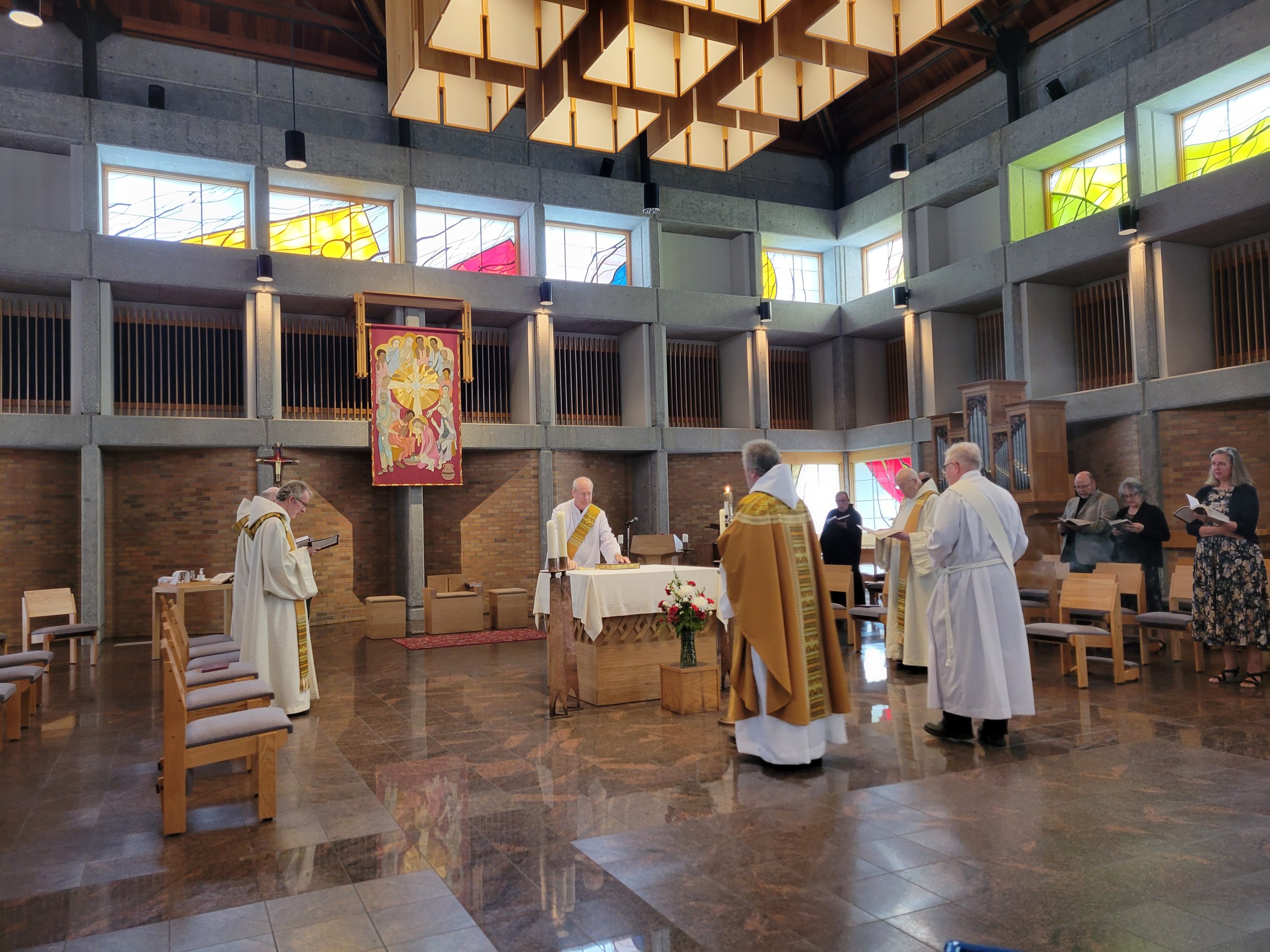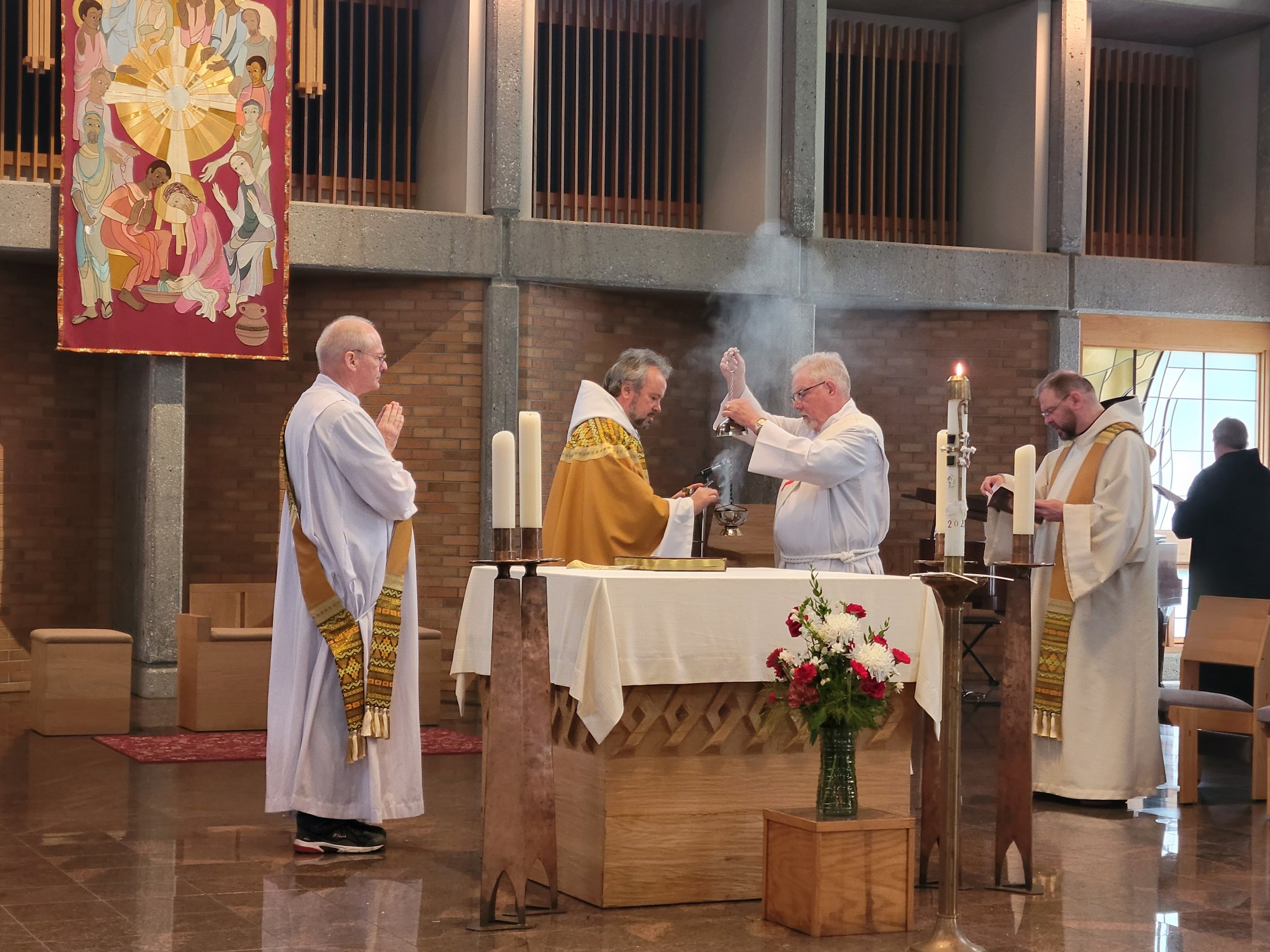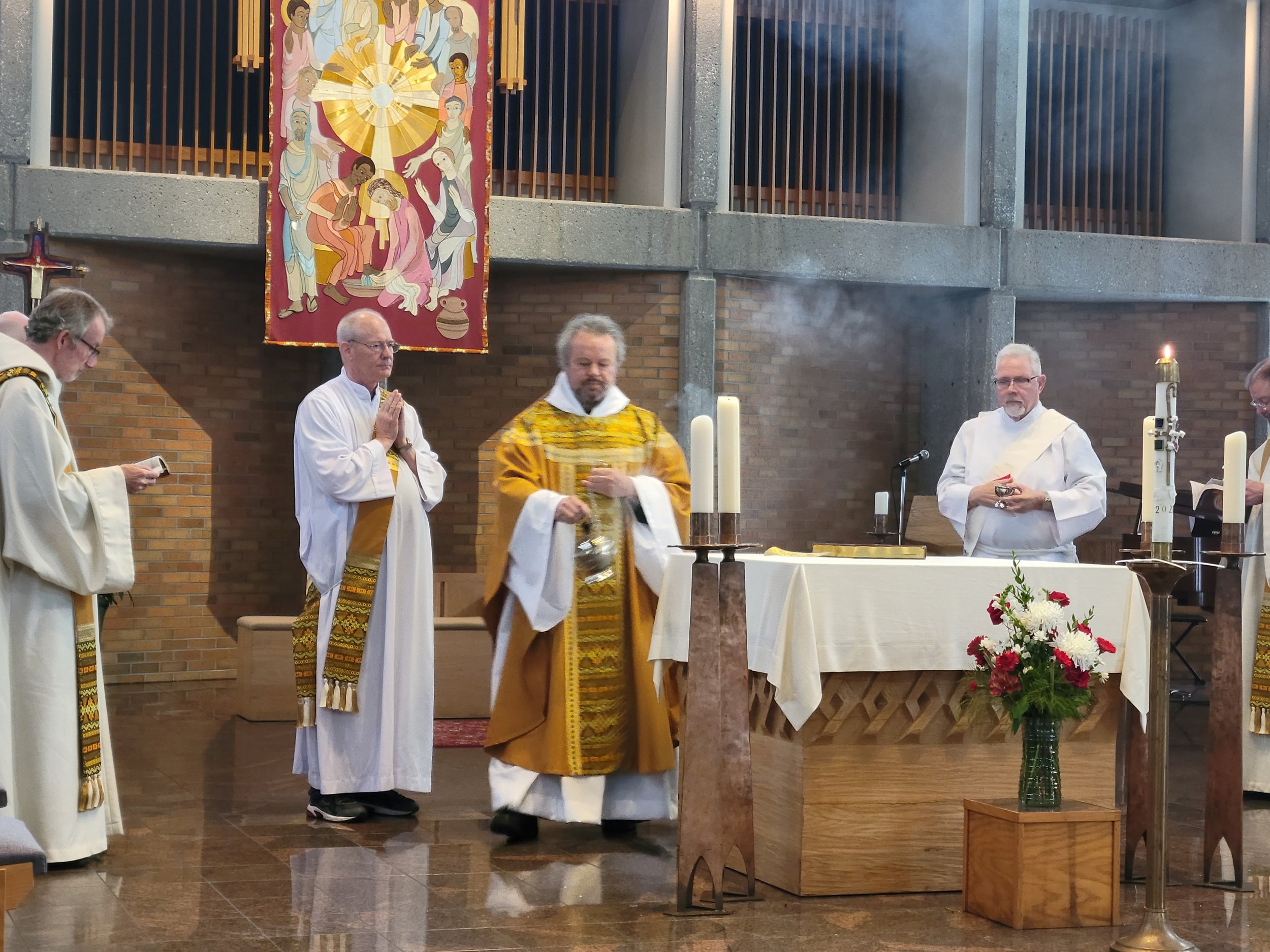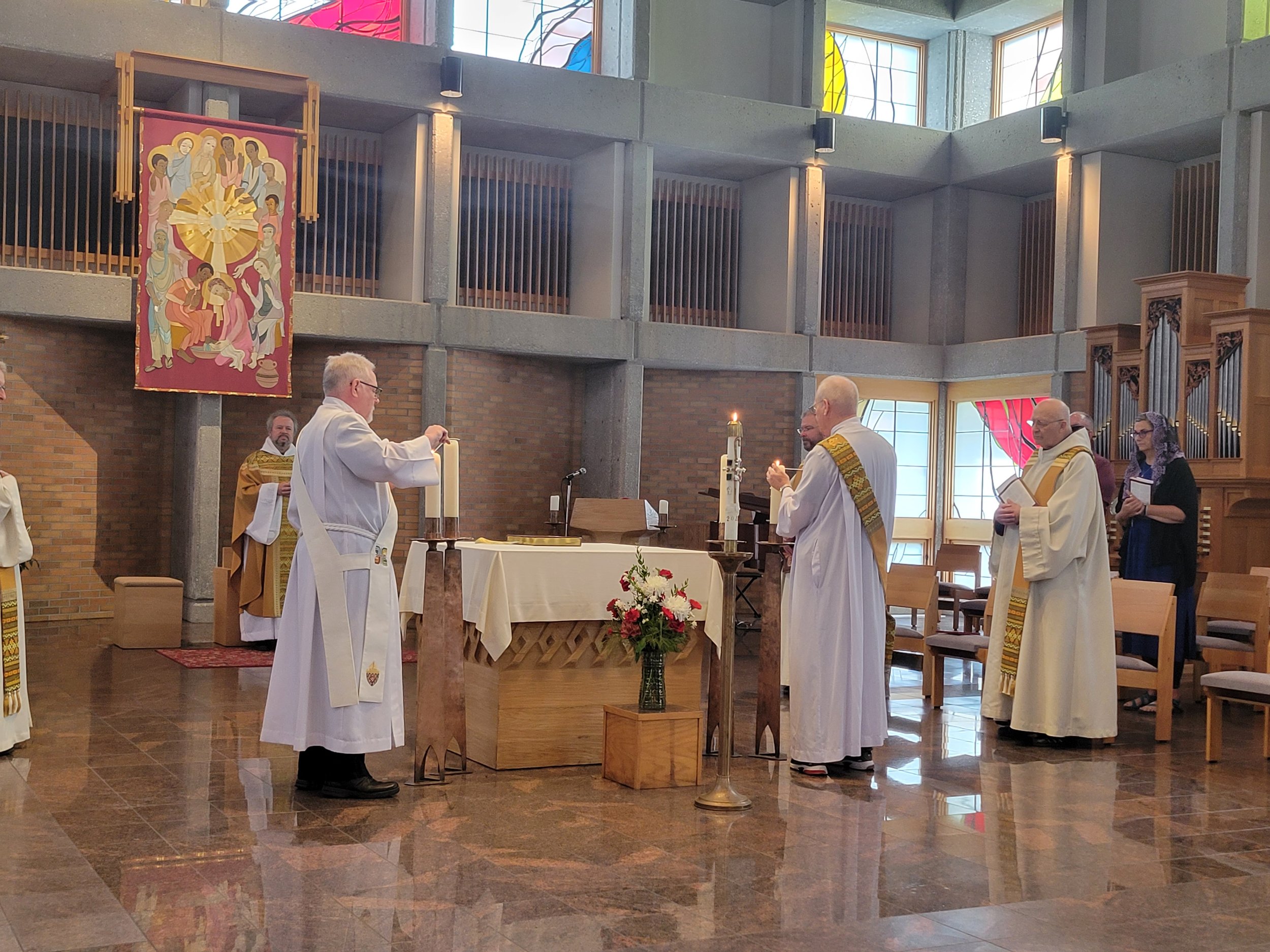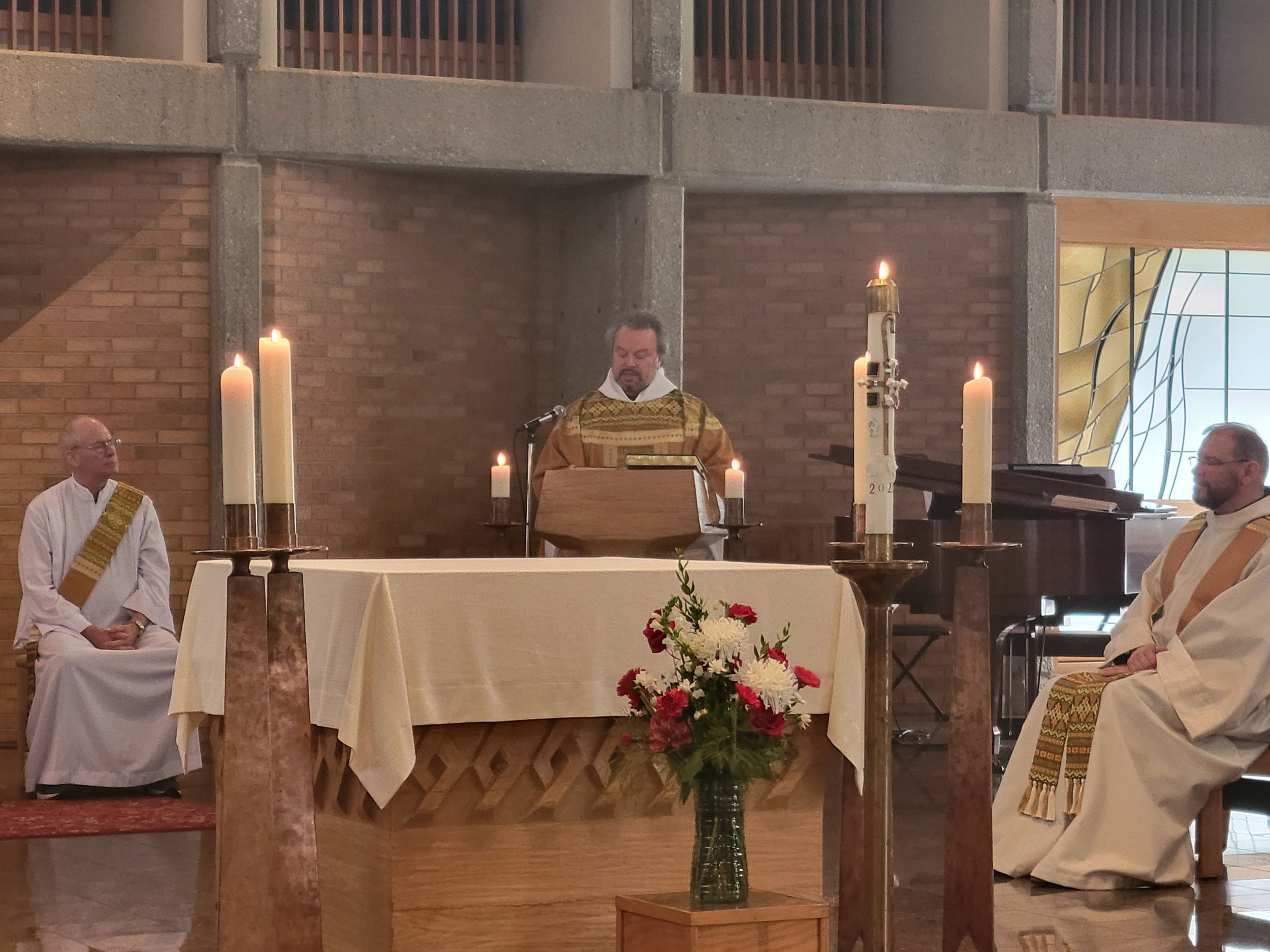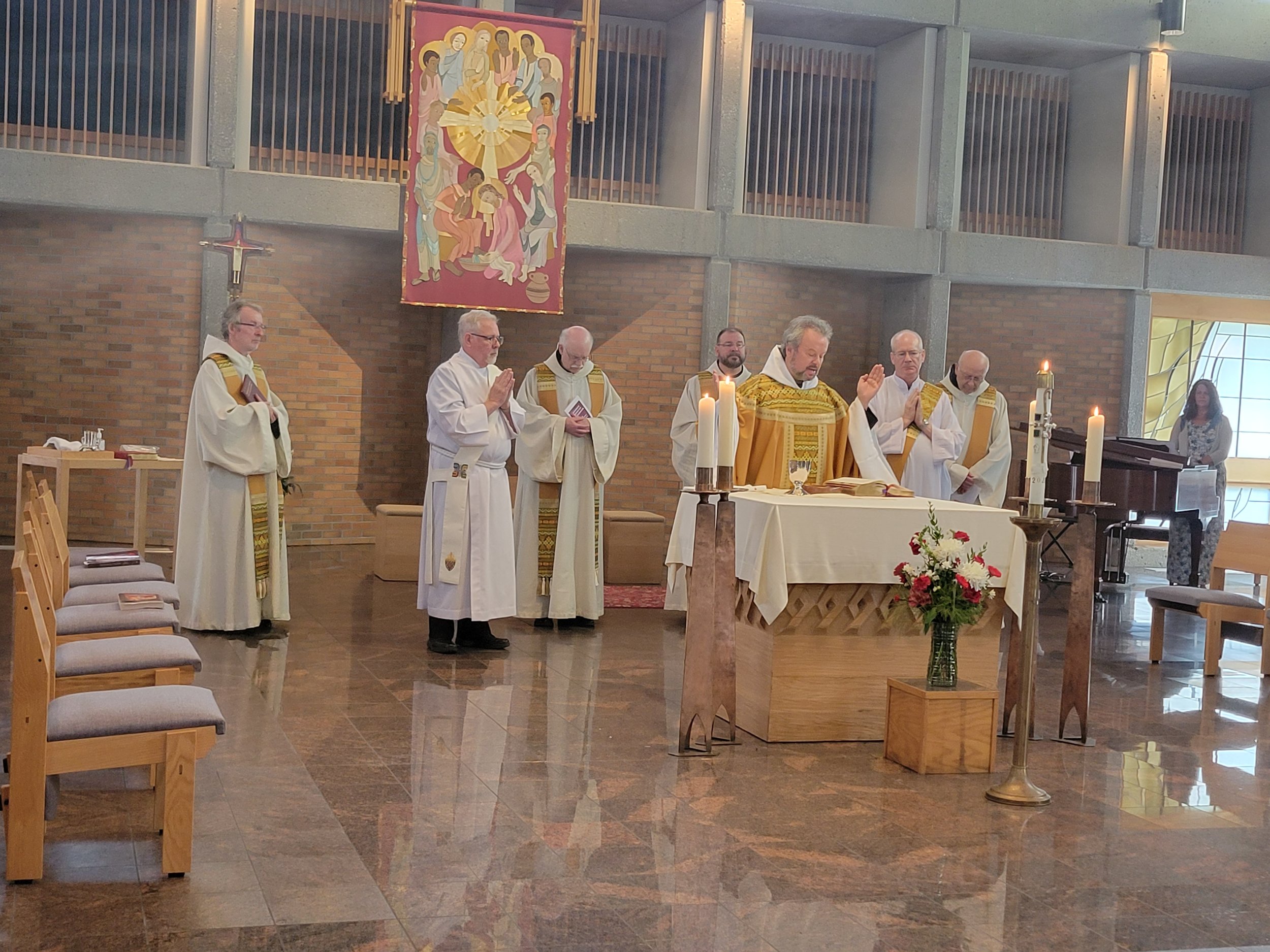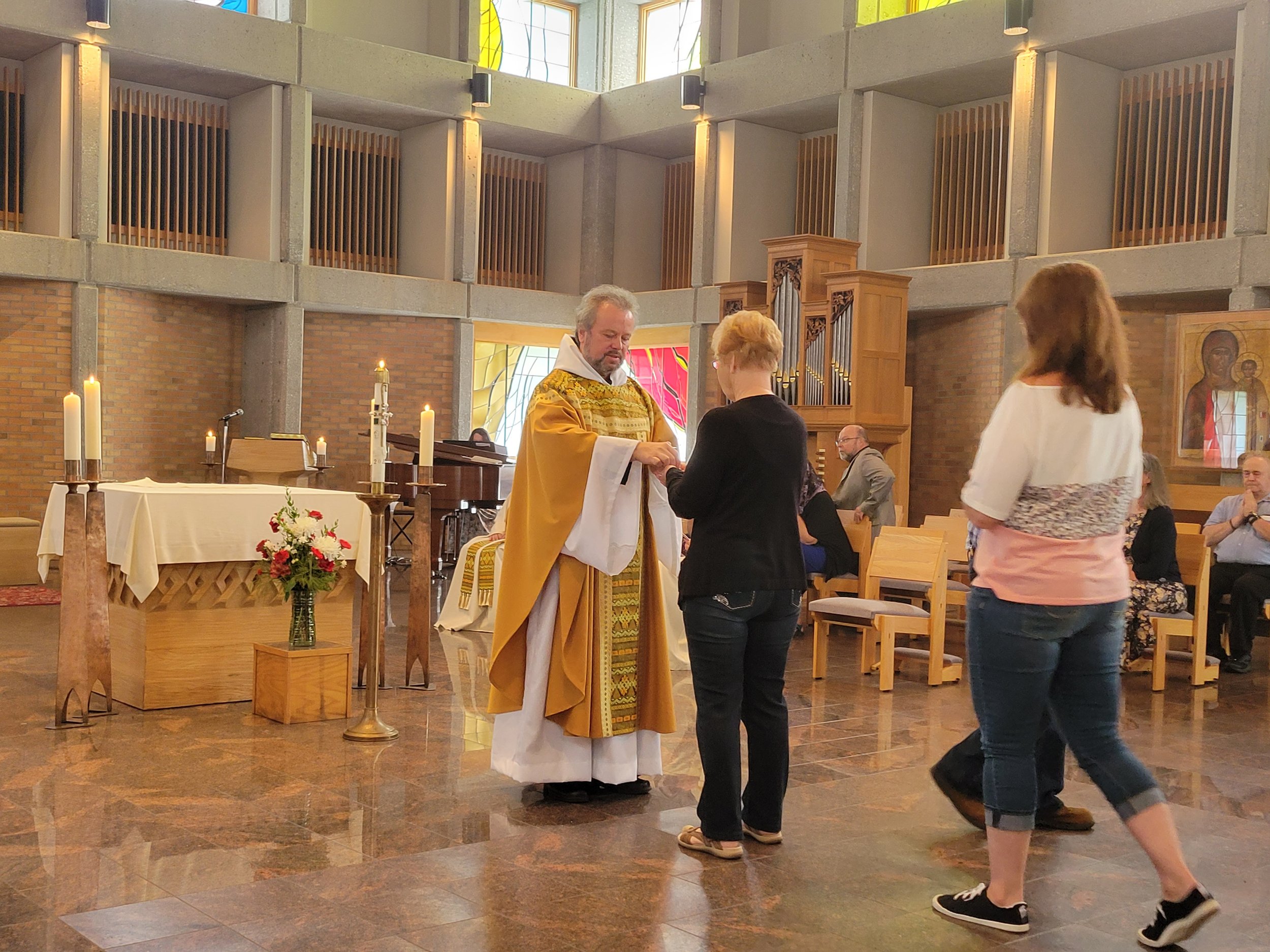Proverbs 2:1-9
Colossians 3:12-17
Luke 22:24-27
The Rome of Benedict’s day was a broken city. Its glory had faded. The city had been attacked a number of times. Foreigners where at the helm of leadership. When Benedict went there to study, he found decadence, low moral life. He abandoned his pursuit of knowledge that he hoped to find there and went off to a lonely place. Perhaps it looks like escape. But by grace even in his youth he realized there was another way, another path to the truth of life. Even in his youth he was led to the realization that there was wisdom of another kind than what Rome could offer. He went to search for that wisdom. The voice that we just heard in the book of Proverbs, the voice of the wise Master echoed in him. He followed it so that he could listen and learn the ways of wisdom that comes from God. He went to the cave and the craggy mountainside to be still with himself so that truth could be born in him.
So Benedict went to listen to the voice of the Master. He went to let that voice claim him. He went to serve that voice that would keep him in the way of honesty, truth and humility. But he was not called to be a hermit or a solitary. His response to the breakdown of the world that surrounded him was not to be a withdrawal and a search for a safe place. Benedict found that he was called to lead and to serve others. He found that his time of solitude led him to a way of wisdom that would bind others together. His experience of the wisdom of God led him to lay out a way not for others to escape from the corruption of society but rather a way to be together in the heart of a fallen world. Benedict’s listening to wisdom became a treasure that he served up for others. The silver and gold he found with wisdom we have come to call his Rule—A guide for those who wish to live together the way of the Gospel. The gift that Benedict came to share with us was the gift of how to organize and live in a community. This was the Gospel response he offered to the chaotic world of his day.
Benedict has shared with us the fruit of his prayer and his life long experience as an abba, a father leading others who wish to live in community with Christ as the living center. His wisdom is the gift of forming a society whose rhythm, manner of life, values and priorities may clearly be different from the world around it. And yet it can speak to that world, to our world. It can say that it is possible to live in a less chaotic, less pressurized and stressful manner. It can speak to the society at large of a balanced life where prayer, reading and work are the breath that both humanizes and divinizes. Benedict’s way offers a vision where the poor and the rich, the colored and the not so colored, can be with one another in a peaceful way.
Remembering – that is what today is all about. Remembering our Holy Father Benedict today brings us back to our roots in history and in vocation. The word of God helps us to hear again what Benedict gave witness to. We are reminded that the Rule is a way of wisdom, way of life, something that is all encompassing—from when and how we get up, how we are to sit at table with one another, to how we divide our day and how we listen and speak to each other, how we welcome those who come to us. We are reminded that we are living in community; we follow Christ in the midst of others. Humility is the virtue that will surface in us as we rub against each other in Christ; and forgiveness must be the attitude that governs what we cannot change or we do not like in others.
And then, we remember service, service modeled on that of Christ, the table waiter. That is how leadership is to be exercised and how the members are to be toward one another. We learn this in the monastery, in the school of the Lord’s service. It is all an ideal, an ideal for us as Benedictine monks who are living under a Rule and an abbot. But today is a day to recall, to remember the ideal as a challenge for us to continue to put on our new life in Christ. It is also an ideal that our world longs for. Today reaffirms our witness in a society where families are fragile and individualism triumphs over solidarity and the good of the other. Today we are confirmed again in our vocation and in our witness. It is a day to take courage. A day to listen again to the wisdom of God in our ancestor and our father, Benedict. It is a day to remember and give thanks for the treasure of wisdom, the wisdom of Gospel living, that has been handed on to us.
~Prior, Fr. Joel Macul, OSB


